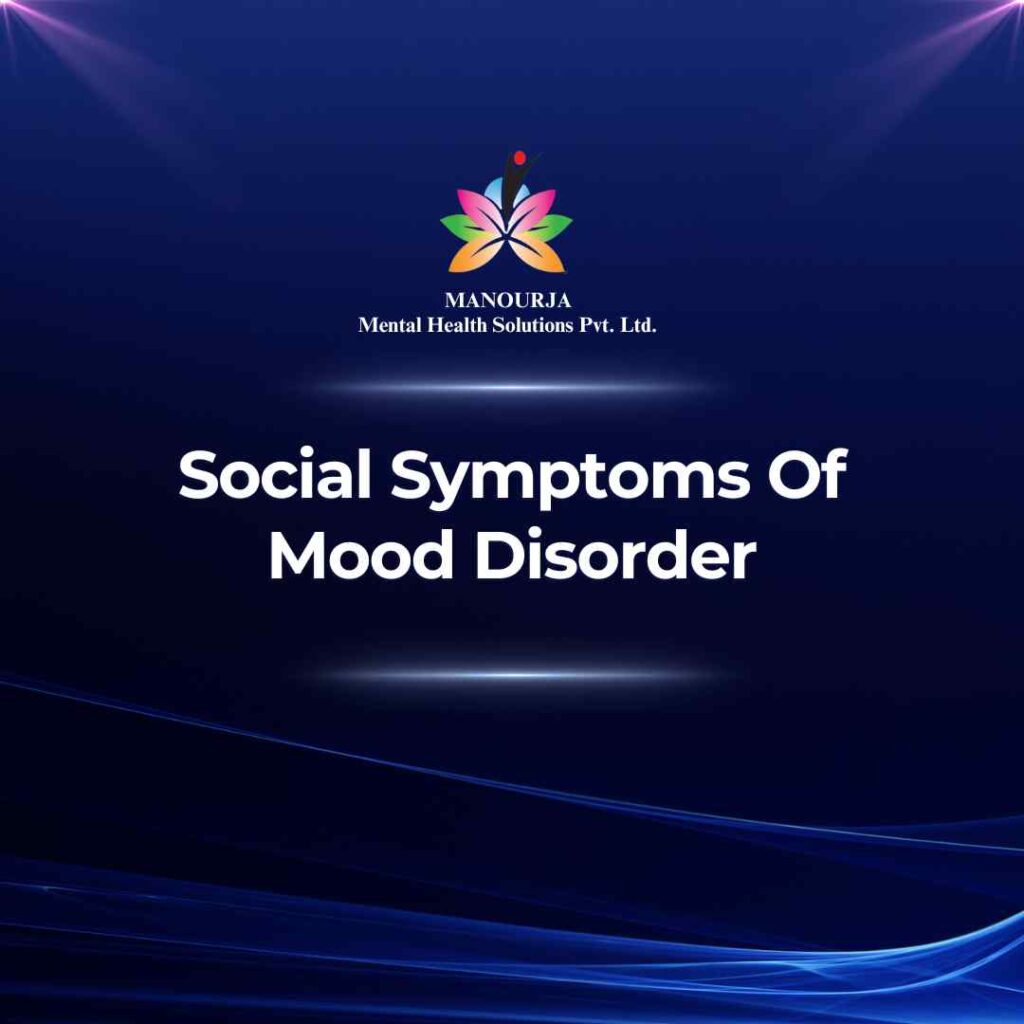Social Symptoms of Mood Disorder

Mood disorders such as major depressive disorder, bipolar disorder, and others can significantly affect an individual’s social interactions and behaviors. The social symptoms of mood disorders are often overlooked compared to the more noticeable emotional and psychological symptoms, but they are equally important as they impact relationships and daily functioning. Here are some key social symptoms associated with mood disorders:
Social Withdrawal
One of the most common social symptoms is a tendency to withdraw from social interactions. Individuals may avoid social gatherings, stop participating in activities they once enjoyed, or isolate themselves from friends and family.
Impaired Relationships
Mood disorders can lead to difficulties in maintaining healthy relationships. Affected individuals might experience increased conflicts, reduced empathy, or difficulty understanding or responding to the emotions of others, which can strain relationships.
Reduced Social Functioning
There might be a noticeable decline in performance at work or school due to difficulty concentrating, decreased motivation, or absences related to the mood disorder. This can lead to further social isolation and decreased self-esteem.
Difficulty in Communicating
People suffering from mood disorders may find it hard to express themselves clearly or to engage in conversations. They might also display inappropriate emotional responses, such as laughing at a serious issue or becoming overly upset over minor things.
Decreased Interest in Social Activities:
Anhedonia, or the loss of interest in pleasurable activities, includes social activities. This can lead to less frequent participation in social events, hobbies, or community activities.
Change in Social Behavior
During manic phases of bipolar disorder, individuals may exhibit unusually outgoing or aggressive social behavior, such as making grandiose statements, taking on many new projects, or exhibiting poor judgment in social and professional interactions.
Perceived Social Rejection
Individuals with mood disorders might perceive others as less friendly or interpret neutral reactions as negative, which can further reinforce social withdrawal and feelings of loneliness.
These social symptoms of mood disorders can create a vicious cycle where social isolation and relationship difficulties exacerbate the disorder’s emotional and psychological symptoms. Addressing these symptoms is an essential part of comprehensive treatment, which often includes therapy, support groups, and sometimes medication to manage the symptoms effectively and improve social functioning.
At MANOURJA, we believe in the transformative power of counseling. Our experienced therapists offer a safe and supportive space where you can explore your thoughts, emotions, and challenges. Through personalized counselling sessions, we’ll work together to develop coping strategies, build resilience, and achieve lasting positive change. Discover the path to a healthier, happier you with MANOURJA counselling services.
MANOURJA Rehabilitation Services
At MANOURJA, we’re dedicated to helping you in rebuild your life, after difficult times. Our rehabilitation services focus on understanding what you need to move forward, whether you’re recovering from addiction, trauma, or any psychological – social challenges. We create personalized plans, that are all about helping you, regain your strength and find hope again. With a caring team by your side, you’ll have the support to make real progress and take steps toward a brighter, healthier future.
